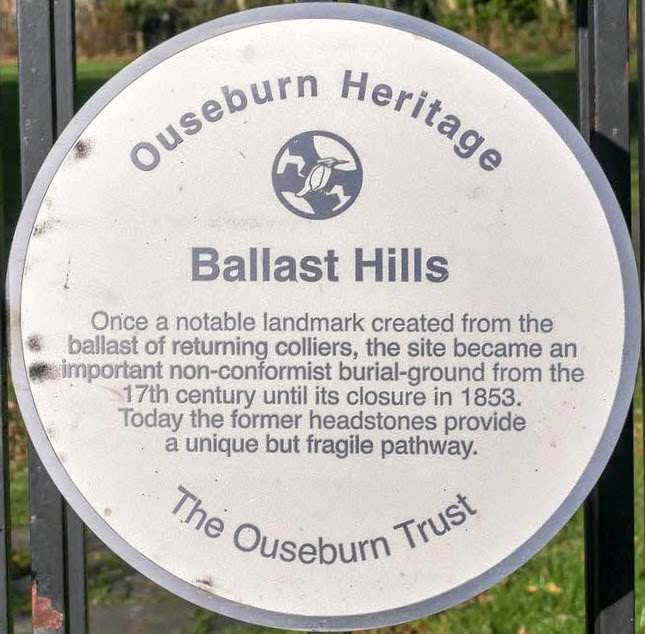Newcastle University experts are calling for relatives of those buried in a historic city burial ground to get in touch.
The researchers are investigating the history of Ballast Hills Burial Ground, in Ouseburn, which was once the primary non-conformist burial ground for the city. It was used from the 1600s to 1853 and around 40,000 people are believed to be buried there. Despite its rich history, the site has remained largely unknown and under-researched.
Now, the team want to hear from people whose ancestors were buried there. Project Lead Dr Myra Giesen, from the School of Education, Communication and Language Sciences, explains: “We are eager to collaborate with individuals who have connections to Ballast Hills, ensuring that this historic site reflects the diverse voices and stories of those connected to it. Every story deserves to be remembered, and every voice has a role in shaping history.”
Ballast Hills Burial Ground, which is located between Albion Street and Ford Street, was a resting place for people from all walks of life—the poor, those of no or all faiths, including members of the Church of England. It provided burial for people who drowned in the River Tyne and still-born babies. Among those buried, researchers already have uncovered some notable and notorious names, reflecting the rich and varied history of the site.
These include Jane Jamieson, the last woman to be hung in Newcastle. The Quayside fish hawker was sentenced to death for the murder of her mother with a poker in 1829. Her crime captured the public imagination and many articles were written about it in the local press. Her final resting place had been unknown until Dr Patrick Low recently found a handwritten note in John Bell’s collection at Newcastle University, stating: “Jane Jameson – The Remains of this unfortunate woman were interred in the Ballast Hills Ground in the afternoon of Friday Sen’night, the last of the anatomical demonstrations having been concluded on the preceding day.”
Another interred individual was, Robert Gilchrist, a celebrated poet who died in 1844. A local celebrity in the mid-19th-century Newcastle, he was known for captivating poetic compositions and lively performances of comic songs. The team hope to uncover more stories of those buried at the site.
Ballast Hills also was targeted by body snatchers, aka resurrectionists. On 19 January 1829, the Newcastle Courant reported the remains of Elizabeth Mills, a seven-year-old girl, were discovered at the coach office just a day after her burial.
Archaeological surveys are underway to help determine the burial ground’s size and boundaries. The team is also developing an online register of those buried or memorialised at the site. They are keen to hear from anyone with old photographs or other records of Ballast Hills.
Dr Giesen states: “Local lore connects the site to names like Plaguey Fields and Granny’s or Grannies Park, but some suggest Plaguey Fields might actually refer to St Lawrence Park. This is one of the many questions our project aims to explore, and we welcome any insights or memories the people may wish to share.
“Beyond researching the site’s history and archives, the project focuses on engaging with people, particularly identifying and reaching descendants of those buried at Ballast Hills Burial Ground—which is not as easy as you might think.”
The project seeks to create a space for descendants to share stories, contribute insights, and help shape the ongoing work of the project. Whether your relatives are buried here or you have an interest in the site and its history, your participation is invaluable in bringing this history to life.
If you know your ancestry is connected to Ballast Hills Burial Ground, please contact the team at ballast.hills@newcastle.ac.uk. Those interested in volunteering can complete the form at https://forms.office.com/e/LWE3kZ4fF3?origin=lprLink. Examples of volunteer activities include assisting with the burial register, contributing to outreach, or uncovering archival material.
This project, supported by the Arts and Humanities Research Council (AHRC) as part of a Curiosity Award, is co-led by Dr Shane McCorristine in Newcastle University’s School of History, Classics and Archaeology.

